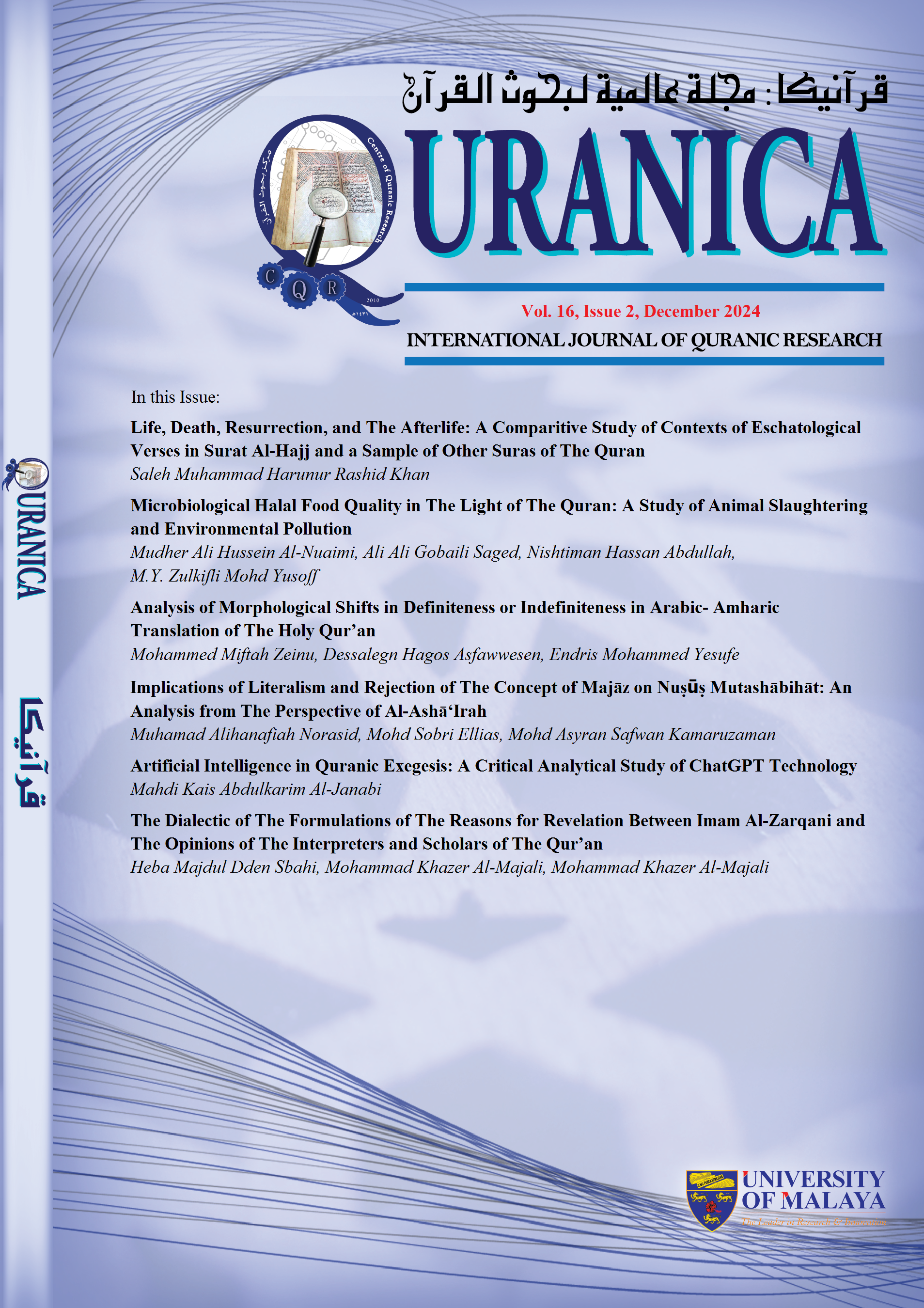The Dialectic of The Formulations of The Reasons for Revelation Between Imam Al-Zarqani and The Opinions of The Interpreters And Scholars of The Qur’an
Main Article Content
Abstract
This research is concerned – in the light of the descriptive approach accompanied by the analytical, critical and comparative approaches– to study al-Zurqani’s attitude of the formulas of the reasons of revelation and his division of them into explicit and possible formulas. In addition, it discusses the resulting division of forwarding the explicit formula on the potential of contradiction, by extrapolating the statements of former and later scholars of Qur'anic studies, particularly the later ones by measuring the extent to which they were affected by his position and their position on it. The research consists of a preface, four sections and a conclusion. The first section indicates the opinion of the commentators before Al-Zurqani in considering the formulas of the reasons of revelation. The second section is concerned to display the former scholars’ opinions. In the third section, we clarify the division of Al-Zurqani by presenting his division of formulas and discussing the formulas that he mentioned and analyzing them, and in the fourth section, we indicate the opinion of the latecomers - those who came after him - in accepting or rejecting the division. The most prominent conclusion of the study that al-Zurqani has followed his predecessors in rooting formulas, and arranged what scattered from their ideas in certain words. Nevertheless -according to what appeared to us– erred in making him look for the narrations be as the formula first, and erred in refusing narrations in possible formulas in exchange for explicit formulas, he carried the words of al-Suyuti above what it bears. It is more reliable to consider soundness in the narrations of the reasons of revelation before considering the formula, because the formula is a subsequent consideration.
Downloads
Article Details
Disclaimer
QURANICA makes every effort to ensure the accuracy of all its contents. However, opinions, discussions, views and recommendations are expressed in this journal do not necessarily reflect the official policy of QURANICA or views of its editors or publishers. Therefore, QURANICA and its publishers will not be liable for any controversy may be arisen. The journal reserves the right, at its sole discretion, to change its terms and conditions of publications.
Copyright
It is a condition of publication that manuscript submitted to the journal have not been published, accepted for publication, nor simultaneously submitted for publication elsewhere. By submitting a manuscript, the author(s) agrees that copyright for the article is transferred to the publisher, if and when the manuscript is accepted for publication.
